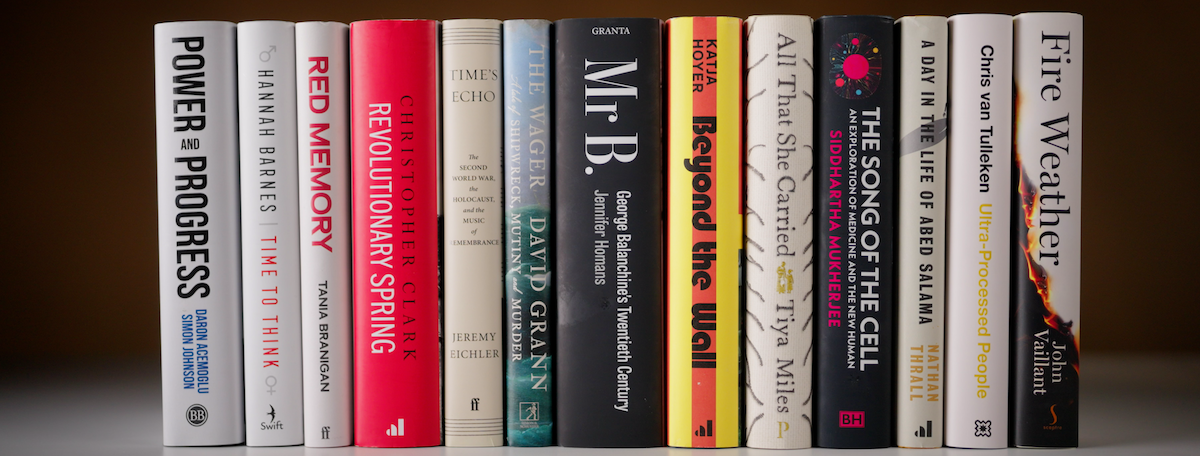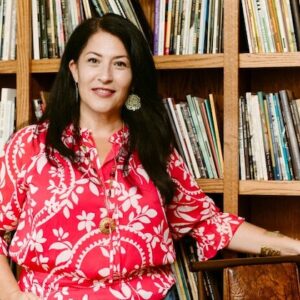Red Memory: The Afterlives of China’s Cultural Revolution by Tania Branigan
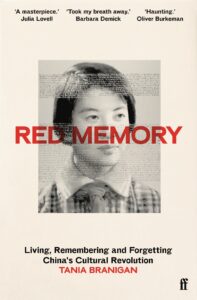
How did you conduct your research?
I travelled across the country to visit museums and other sites but most of all, to meet survivors and spend hour after hour listening. What unites all the people in Red Memory is that they chose to remember when everyone else preferred to forget. I wanted to understand not just what happened to them, but how they saw it all; to be led, firstly, by what they chose to tell me, and how they told it, before delving deeper and asking them more. In most cases I met them multiple times, over months and years, and often, their stories overlapped. That allowed me to build up a much richer and more comprehensive picture of the era and what it means to people today—whether their overwhelming feeling is guilt, trauma or even nostalgia. Then there are all the people who aren’t mentioned directly in the book but whose experience informed it in so many ways. Those I met included Mao’s personal photographer, who captured both iconic images of the Great Helmsman and his private family moments—but then, like so many, was hounded in the Cultural Revolution. Several of them have died since we spoke; I was privileged to capture a part of history that is slipping away very fast.
Of course, I also benefited immensely from the wealth of research that’s been done by scholars and other researchers, both outside China and within. My reading stretched from personal memoirs and fiction through to in-depth studies of everything from Mao badges to mass killings. I hope that readers of Red Memory will turn to some of those books too.
In Red Memory, you delve into the personal stories of individuals who lived through the Cultural Revolution and its enduring impact on Chinese society. What was the most compelling or surprising story from your research that sheds light on how this tumultuous period continues to shape China today?
In political terms it’s hard not to see today’s China—in particular Xi Jinping’s concentration of power and axing of term limits—in light of his personal experience of the era, when his family was persecuted and he spent seven years laboring in bitter rural poverty. In psychological terms, the ongoing toll is encapsulated by the apparently mild-mannered young man who suddenly published a graphic account of killing one of his tutors. It was only after his family began seeing a psychotherapist that he learned that his father had watched as his grandfather was murdered by Red Guards. It speaks volumes about the secrets that families still keep, and their cost. The past refuses to be left behind.
What shocked me most, however, were the growing parallels between the Cultural Revolution and what I saw as I was writing—both in China and in the west.
Ultra-Processed People: The Science Behind Food That Isn’t Food by Chris Van Tulleken
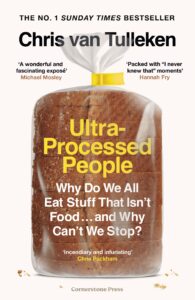
How did you conduct your research?
This book has been gestating for six years and involved investigating the food industry around the globe. I’ve seen first-hand how the UPF industry, comprising some of the most powerful corporations on earth, has commodified the ill health of our planet’s most disadvantaged whilst working as a doctor and academic in Brazil, South Asia and Central Africa. However, some of the most interesting research was speaking to food industry insiders who explained the extent to which money is the only incentive within the food system. It revealed how these companies will be unable to change unless their activities are regulated by governments.
Based on your research, how dangerous could ultra-processed food become for our society?
Poor diet has overtaken tobacco as the leading cause of early death on planet Earth. It causes not just weight gain and obesity but also cancer, inflammatory disease, malnutrition, metabolic illness, mental health problems and dementia and it drastically shortens life expectancy. It is the new tobacco, and we should consider the corporations that make it as the new tobacco industry.
Do you believe it is possible for us to ever have a true, holistic grasp of what we are really eating and how it affects us?
Yes. For hundreds of millennia, humans going back to pre-history have had a very sophisticated understanding of what comprises a healthy diet. That knowledge has been destroyed by the marketing and proliferation of an ultra-processed diet, comprising substances and made using processes that create products that no one can fully understand. If you want to understand food, speak to a good chef or a parent who cooks real food for their kids.
Fire Weather: A True Story from a Hotter World by John Vaillant
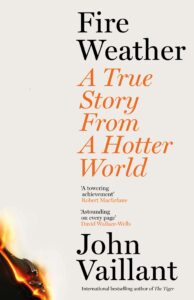
How did you conduct your research?
Through every means of perception available to me: On-the-ground, in-person research and interviews; retracing the steps, work, and words of key characters, living and dead; extensive reading, watching, looking, listening, and smelling; following closely (via Twitter) the fields of science, business, petroleum, insurance, activism, and fire behavior; and, frankly, through dreaming, which gave me the narrative structure and psychic clarity to take on this daunting subject.
How is understanding the histories of the oil industry and climate science crucial to the future of addressing environmental issues?
We have arrived at this moment on a braided bridge of ambition, invention, good intention, and greed. The history of the oil industry offers a vivid, unvarnished lens through which to understand these complementary drivers. Climate science, meanwhile, offers a corrective: that is what you think you’re doing; this is what you’re actually doing. In this way, science serves as a reality check, but also as an objective guide to shaping, and possibly healing, the future.
The Song of the Cell: An Exploration of Medicine and the New Human by Siddhartha Mukherjee
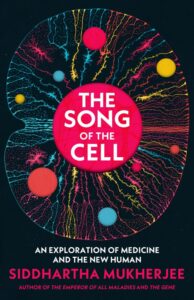
How did you conduct your research?
The book was written over the course of a few years, but it is deeply connected to the foundation laid out during my medical school years—studying to be a cell biologist, an immunologist and an oncologist. The most challenging aspect was organizing the structure of the book to vividly convey its message to the audience.
Based on your research, how far could the study of cells take humanity?
Life without contemplating cells is inconceivable for any scientist. In the realm of medicine, we’re transitioning from the era of genetic research to the era of cellular exploration—a nascent science with a myriad of therapeutic potentials. However, alongside these possibilities arise ethical and philosophical inquiries, as we delve into the profound alteration of human bodies. It’s a consideration that demands reflection both as medical professionals and as societies.
How does the book mix biology with character study?
The history of cell biology is full of strong characters, and finding them was not hard. There is also a thread of personal history, involving my own work in the lab and my encounters with patients. The stories all touch directly on the underlying science, which allows the book to weave around its subject in a way that I hope feels right.

